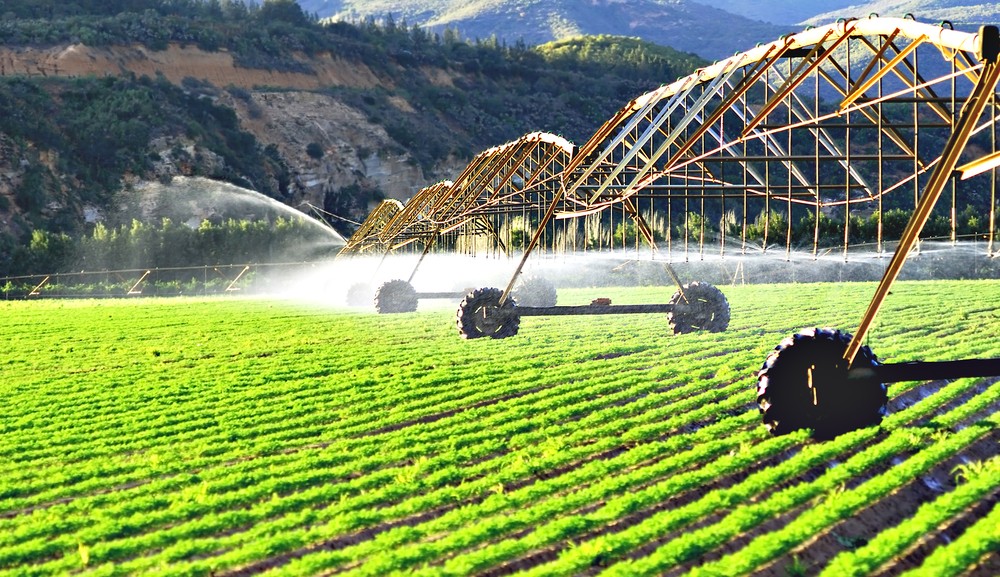Africa is home to 60 percent of the world’s uncultivated arable land, translating to nearly 200 million hectares indicating that the continent has enormous potential for agricultural growth and seen as the world’s future breadbasket.
According to the World Bank, the agricultural economy employs 65 – 70 percent of Africa’s labor force and accounts for 30–40 percent of the Gross Domestic Product (GDP).
Furthermore, data by Statista indicates agriculture posted around 17 percent of Sub-Saharan Africa’s GDP in 2021, growing by roughly two percent compared to 2011. The job market also grew from around 197 million in 2011 to 226 million in 2021.
African governments have invested heavily in agribusiness through smart farming in a bid to address food security, which has been worsened by erratic weather patterns.
Emerging Brand Africa looks at African countries to watch amid agribusiness boom:
5. Angola
Angola has the natural resources to become one of the leading agricultural producers in Africa, as its diverse and fertile soils are suited for a variety of crop growing and livestock keeping.
Moreover, about 88 percent of farms in Angola are small to medium in size and are under communal and subsistence farming.
Angola currently only cultivates approximately 10 percent of its 35 million hectares of arable land.
4. Tanzania
According to the Africa Enterprise Challenge Fund, agriculture remains one of the most important sectors of Tanzania’s economy.
It accounts for approximately 25 percent of GDP and 85 percent of exports.
Agriculture is the main economic activity for 70 percent of Tanzanian households and 75 percent of all Tanzanian jobs are within the agricultural sector,.
In addition, smallholder farmers produce up to 80 percent of all agricultural products.
Tanzania is the second largest producer of rice in Eastern and Southern Africa after Madagascar.
Tanzania’s Agribusiness sector faces challenges such as the availability, acceptability, affordability, and accessibility of agricultural produce and products.
At the same time, the country grapples with access to processing infrastructure in both rural and remote areas.
3. Ethiopia
Ethiopia is a major producer of cereals and the largest wheat producer in sub-Saharan Africa.
In 2021, the production of cereals in Ethiopia hit 30.1 million metric tons, making the country the leading cereal producer in Africa, according to Statista reports.
The African Development Bank scheme dubbed Technologies for African Agricultural Transformation (TAAT) offers new and better seeds that could make Ethiopia self-sufficient within five years.
Besides, agriculture accounts for 35 percent of Ethiopia’s economy and absorbs about 73 percent of the workforce.
2. Nigeria
Nigeria has 70.8 million hectares of agricultural land area with maize, cassava, guinea corn, yam beans, millet, and rice being the major crops, according to Food Africa Organization (FAO). The country is a leader in various types of agricultural production, such as palm oil, cocoa beans, pineapple, and sorghum.
It is the largest producer of sorghum in the world just after the United States and ranks fifth in the production of palm oil and cocoa beans.
What’s more, the Nigerian National Cereals Research Institute predicts that the country can become self-sufficient in rice in eight years if post-harvest losses are reduced to between 30 percent and 16 percent.
1.South Africa
South Africa, one of the most advanced and diverse economies in Africa with the largest agricultural area devoting around 96 million hectares of land to growing crops.
South Africa has a market-oriented agricultural economy that is highly diversified and includes the production of all the major grains (except rice), oilseeds, deciduous and subtropical fruits, sugar, citrus, wine, and most vegetables.
The agricultural sector contributed around 10 percent to South Africa’s total export earnings in financial year 2020 at a value of $10.2 billion, according to the International Trade Administration (ITA).


